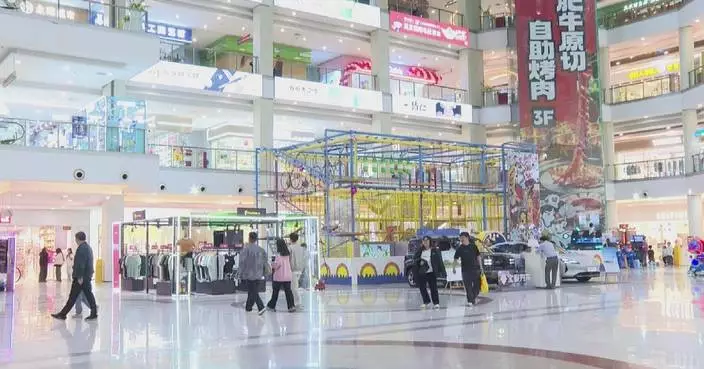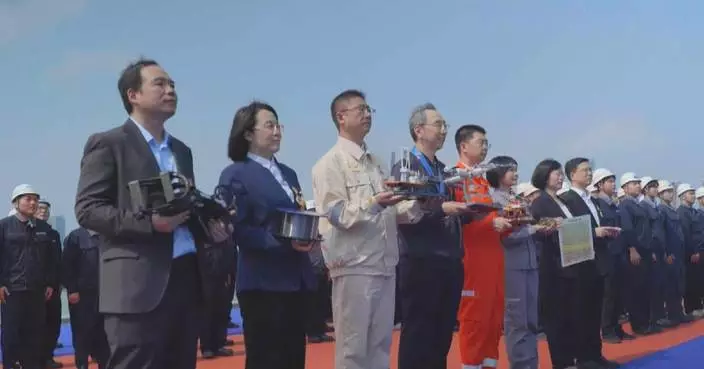Chinese President Xi Jinping, also general secretary of the Communist Party of China Central Committee, visited an apple production base to learn about the development of the modern fruit industry while inspecting Tianshui City in northwest China's Gansu Province.
Xi inspected the city of Baoji in northwest China's Shaanxi Province and the city of Tianshui in neighboring Gansu Province from Tuesday afternoon to Wednesday morning.
Located in the Maiji District of Tianshui City, the apple production base, which began construction in 2005, spans three townships and 25 villages, covering an area of 10,000 hectares.
The production base serves as a demonstration site for modern agriculture, integrating fruit production, technological innovation, tourism, and diverse educational opportunities.
It has partnered with leading companies and distributors, enhanced its marketing systems, and introduced a variety of marketing strategies, which ensure that the apples not only grow well but also sell well in the market.
In 2023, the base produced 220,000 tons, or 600 million yuan's (84.27 million U.S. dollars) worth, of apples.
The average per capita net income from fruit growing in the region has surpassed 8,000 yuan (1,123 U.S. dollars), leading to increased incomes for 9,163 households and 41,300 individuals.

Xi learns about development of modern fruit industry in Tianshui

Xi learns about development of modern fruit industry in Tianshui
Brazilian President Luiz Inacio Lula da Silva met with visiting Chinese Foreign Minister Wang Yi in Brasilia on Wednesday, expressing the willingness to strengthen bilateral ties and expand cooperation.
Lula said that Brazil and China have built strong mutual trust and deepened cooperation across various fields, showing that Brazil's steadfast friendship with China is the right choice and a model for South-South cooperation.
He said that he looks forward to maintaining close high-level exchanges with China, further strengthening economic and trade ties, and expanding the mutually beneficial cooperation in finance, energy and other fields.
China's firm and forceful countermeasures against the "reciprocal tariffs" is admirable, said the Brazilian president, noting that China's just actions have received widespread support while certain country's irresponsible and unilateral practices warrant joint resistance.
Brazil is willing to work with China to advocate free trade, defend international rules, and counter any power overriding international justice, the president added.
Wang, who is also a member of the Political Bureau of the Communist Party of China Central Committee, said that China is willing to work with Brazil to implement the important consensus reached by the two heads of state and push for more outcomes in building a China-Brazil community with a shared future.
China will strengthen its cooperation with BRICS and Global South countries, adhere to multilateralism and safeguard international rules, he said.
On the same day, Wang attended the 15th Meeting of BRICS National Security Advisers and High Representatives on National Security in Brasilia.

Brazilian president meets Chinese FM on closer ties, cooperation






















































